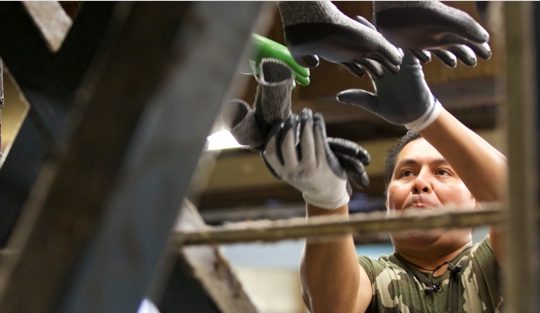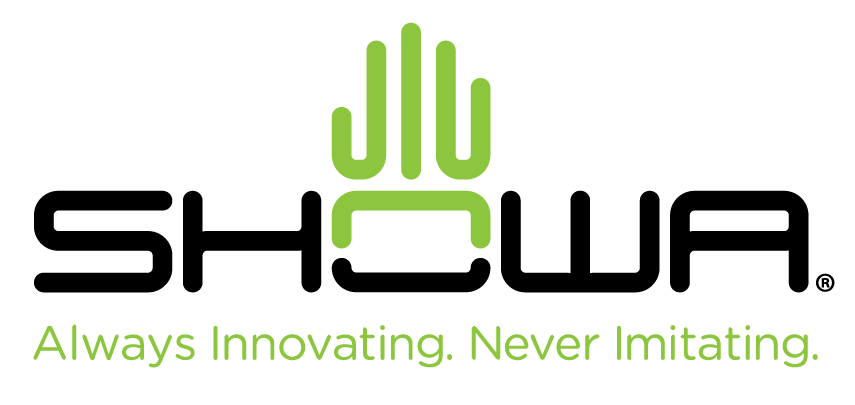- FIND GLOVES BY HAZARD
-
FIND GLOVES BY INDUSTRY
- Food
- Printing
- Engineering
- Automotive
- Chemical
- Railways
- Metallurgy
- Healthcare
- Packaging
- Mechanical
- Glass
- Electronics
- Utilities
- Construction
- Landscaping
- DIY
- Outdoor Sports
- Mining
- Airports & Ports
- Janitorial
- Manufacturing
- Warehousing & Distribution
- Clean Room
- Pharmaceutical
- Aerospace
- Laboratory
- Municipal services
- Agriculture
- Commercial Fishing
- Oil and Gas


In the wake of the recent (and continuing) COVID-19 pandemic, diseases that threaten public health have become a hot topic.
Since May 2022, Monkeypox is the latest virus to affect the general public. The World Health Organization and other public health authorities, such as the U.S. Centers for Disease Control and Prevention, have now declared it as a public emergency. The virus can be transmitted in various ways but a simple solution can limit its propagation. Using designated gloves can be a solution, but other exists.
Use gloves designed for protection from viruses
One of the best defenses against infection from monkeypox, as well as many other viral diseases, is wearing protective gloves that conform to the EN ISO 374-5:2016 technical standard for protection against viruses. Note that this is different from the EN ISO 374-1:2016/Type B or Type C standards for protection against microorganisms and various chemicals.
The packaging for all industrial gloves will indicate whether they conform to any of these codes. Leading industrial glove manufacturer SHOWA is one company that offers gloves that adhere to all of the above standards.
Recommended gloves
Specifically, the following SHOWA gloves are recommended for protection from viral infection:
• SHOWA 7502PF
This powder-, latex- and accelerator-free glove features textured fingertips. Made with SHOWA’s revolutionary Eco Best Technology, it’s biodegradable, chemical-resistant and designed for sensitive skin. These gloves are ideal for food handling and cleaning.


• SHOWA 6112PF
This waterproof, powder-free and latex-free glove features textured fingertips. Made with SHOWA’s revolutionary Eco Best Technology, it’s lightweight, form-fitting and disposable. These gloves are designed for food handling and maintenance work.


• SHOWA 6110PF
This waterproof powder- and latex-free glove features textured fingertips. Made with SHOWA’s revolutionary Eco Best Technology, it’s lightweight, form-fitting and designed for single usage. These gloves are well-suited for food handling (especially meats and seafood) and cleaning.


If you look closely at the back of the packaging for the above gloves, you’ll see two logos, one indicating that these gloves meet the EN ISO 374-5:2016 standard for protection from viruses, and one indicating that they meet the EN ISO 374-1:2016/Type B or Type C standard for protection against microorganisms and various chemicals.
These gloves are particularly suited for cleaning surfaces or handling objects in areas where monkeypox-infected persons may have been. SHOWA gloves will help to prevent the virus that causes monkeypox from coming into contact with your hands.
Precautions in addition to gloves
Gloves alone may not confer 100% protection to their wearer from monkeypox; instead, wearers should consult official guidance from the WHO for best practices to avoid the disease. Some of this guidance is summarized here:
1. Avoid wild animals
Wild animals (including monkeys, anteaters, hedgehogs, prairie dogs, squirrels, shrews and dogs) can be carriers of many viruses, diseases and parasites, not the least of which include monkeypox. Bites, scratches or contact with an animal’s bodily fluids or skin lesions can lead to transmission of monkeypox if an animal is infected with it. Hunters and others should avoid eating the meat of any animals caught in the wild.
2. Cook animal meats thoroughly
If you do eat meat, be especially cautious when preparing it and cooking it. Always wash your hands thoroughly before and after handling uncooked meat, and wash any surfaces, dishes and other objects meat has come into contact with using soap and hot water. A common mistake people make when cooking meat is to chop it on a cutting board or other surface and then to chop other foods, such as vegetables, using the same board or surface without thoroughly washing it first. To handle food properly, try chopping and preparing all your other ingredients first (also taking appropriate precautions) before cutting up your meat. Another precaution you can take is to use multiple cutting boards — one for each type of meat and another for all other ingredients. Remember that no matter which approach you take, you shouldn’t let your cooked meats come into contact with surfaces that uncooked meats touched. And always cook meat thoroughly; don’t heat just one area of the meat and leave other areas of it bloody.
3. Limit contact with infected people
This should be obvious, but you will lessen your chances of contracting monkeypox by limiting your contact with anyone who is or might potentially be infected with the disease. Not everything is understood about monkeypox transmission, so this is commonsense advice.
4. Stay informed about monkeypox spreading in your community
One of the best ways to avoid monkeypox is to know the extent of its spread in your community. Stay abreast of news and alerts — even casual talk between friends — to keep up with the current situation regarding which people might be infected, if any might be connected to you or people you know, and where monkeypox hotspots are. The better informed you are, the safer you can be.
5. Talk frankly with your acquaintances
Monkeypox should be a topic of conversation among people you associate with, particularly if it’s present in your community. You shouldn’t be afraid to speak frankly about it, especially with any intimate and sexual partners you have — including past and future partners. Since sexual contact is one of the primary ways monkeypox passes from one person to another, taking this precaution is critical to stopping transmission of the disease.
6. Always clean your hands if you may be at risk
If you’re around anyone who might be infected with monkeypox — regardless of whether they show symptoms — be sure to use safe hygiene. Wash your hands frequently using alcohol-based disinfectants, soap and hot water.
7. Disinfect surfaces
Use household disinfectants or bleach where appropriate to clean surfaces, especially in shared environments — particularly those where the disease may be present. Disinfectants and bleach are strong enough to kill monkeypox on contact. It’s advised that anyone cleaning these surfaces wear the specific gloves from SHOWA described above.
Some facts about monkeypox
Monkeypox can be transmitted through contact with human body fluids, contaminated objects and, potentially, aerosolized droplets in the air. However, according to the WHO, many monkeypox cases so far “have involved mainly — but not exclusively — men who have sex with men.”
Those who are infected with monkeypox can exhibit fevers, swollen lymph nodes, and/or blisters or rashes on the body or in body cavities; these symptoms can last between two and four weeks. In some cases, however, those infected may show few, if any, symptoms. Those who believe they are infected with monkeypox can have skin lesions tested for the presence of monkeypox DNA.
Monkeypox can be fatal in between 1% and 10% of cases. It’s especially dangerous for children and those infected with the human immunodeficiency virus, or HIV. There’s no known cure for the disease, but precautions can be taken to avoid contracting monkeypox as outlined below.
If you become infected with monkeypox
If you think you may have been infected with monkeypox — regardless of whether you’re showing symptoms — there are steps you should take to discourage further transmission and help you and others stay safe.
1. Seek medical advice
Talk with a doctor about being tested and/or remedies and care you should take if you do indeed have the disease. Email or telemedicine may be the safest way to communicate at first.
2. Isolate from other people
Monkeypox is fairly contagious; it’s common for people who take no precautions to infect family members, friends, roommates or casual acquaintances through actions as simple as sharing drinks or food utensils.
If you know you’ve been infected, the best way to avoid passing on the infection is to isolate yourself from other people until you have no new visible sores and the scabs from all your original sores have crusted over and fallen off and a new layer of skin has formed underneath them. Any sores in body cavities or internal areas should have completely healed. Whenever possible, have food delivered to you during this period and/or have someone else do your shopping. Avoid public areas and contact with other people.
3. Get advice about whether you should go to a health facility
If you live with other people, staying at home may not be recommended. In this case, get advice from a healthcare professional about whether you should go to a dedicated facility to quarantine.
4. Wait before having sexual contact
If you’ve been infected with monkeypox, you should avoid sexual contact with another person for at least 12 weeks after you’ve fully recovered.
5. Use condoms
Until more is understood about the transmission of monkeypox, it makes sense to have safe sex. Use condoms each and every time you’re with a partner.
While monkeypox is a public emergency, if everyone follows the official WHO guidelines, including using gloves when appropriate, the disease can be brought under control and effectively stopped in its tracks.





